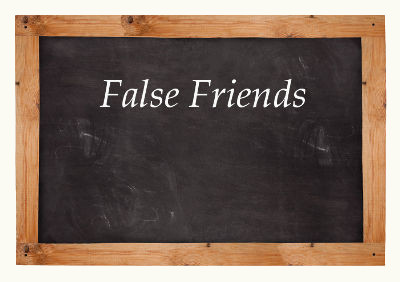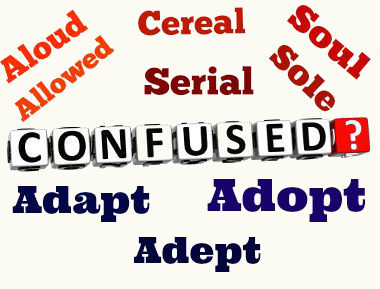False friends are expressions or words that look similar with the Portuguese in their spell, but their meaning are different from the other language. There are a lot of “similar” words in English that made us to think that it has the same meaning, but they don't have. / Falsos cognatos são expressões ou palavras que parecem similares com o português em sua escrita, mas possuem significados diferentes. Existem muitas palavras “similares” em inglês com o português que nos fazem pensar que possuem o mesmo significado, mas elas não possuem.
The false friends are words derived from Latin that appears in different languages with a similar spelling, they have the same origin, but with the time and the spread of the languages they acquired different meanings. Besides these words have different meanings they have as well multiple meanings, the same word can be a lot of meanings. / Os falsos cognatos são palavras derivadas do Latim que aparecem em diferentes línguas com uma ortografia similar, elas possuem a mesma origem, porém, com o passar do tempo e a expansão de cada língua, elas adquiriram significados distintos.
Let's take a look in some examples: / Vejamos alguns exemplos:
Appoint = Nomear, designar
Point at someone / something = apontar
Beef = Carne bovina em geral
Steak = Bife (o pedaço da carne)
Comprehensive = Amplo, abrangente
Sympathetic = Compreensivo
Deception = Ilusão, Engano
Disappointment = Decepção
Enroll = Matricular-se, inscrever
Roll up = Enrolar
Gracious = Bondoso, amável
Graceful = Gracioso
Lecture = Palestra
Reading = Leitura
China = Pode ser China, o nome do país, ou também pode ser usado para dizer que é porcelana, por exemplo: A china plate - um prato de porcelana e não um prato da China.
Inauguration = Significa inauguração, mas também pode significar posse, como no exemplo: Today is the senator inauguration. (Hoje é a posse do senador.)







